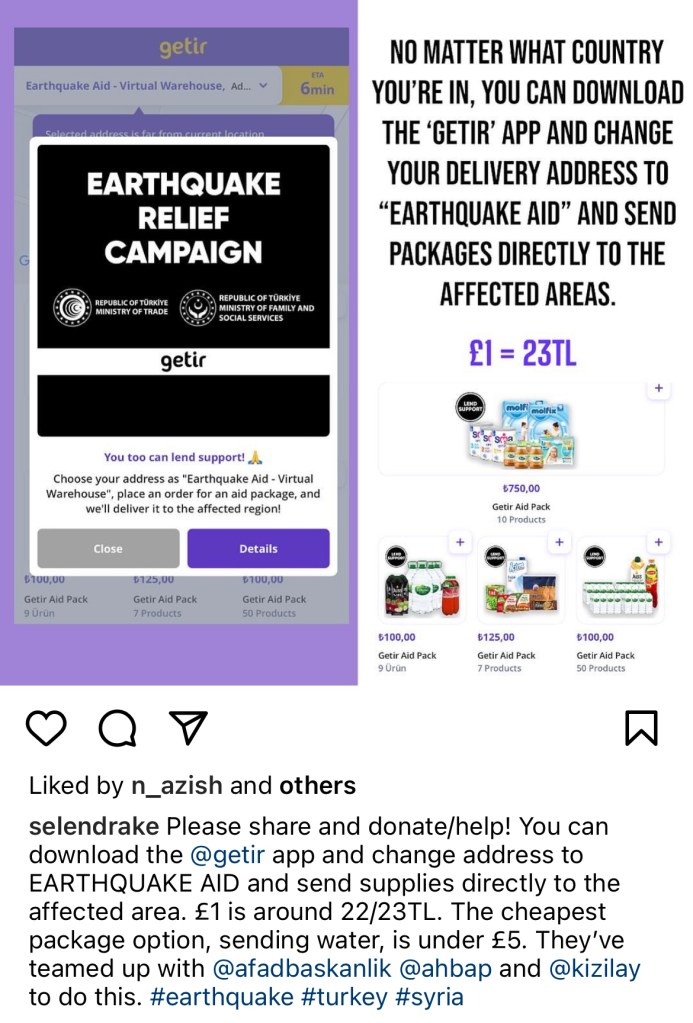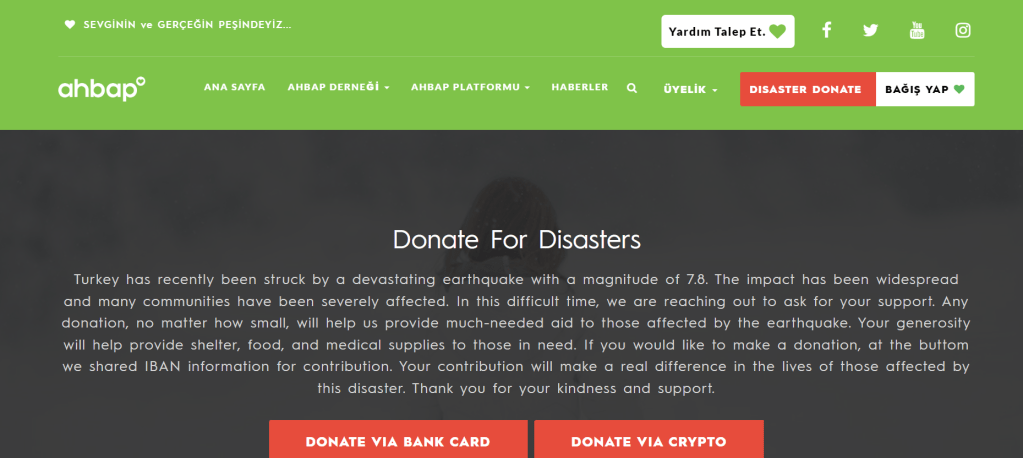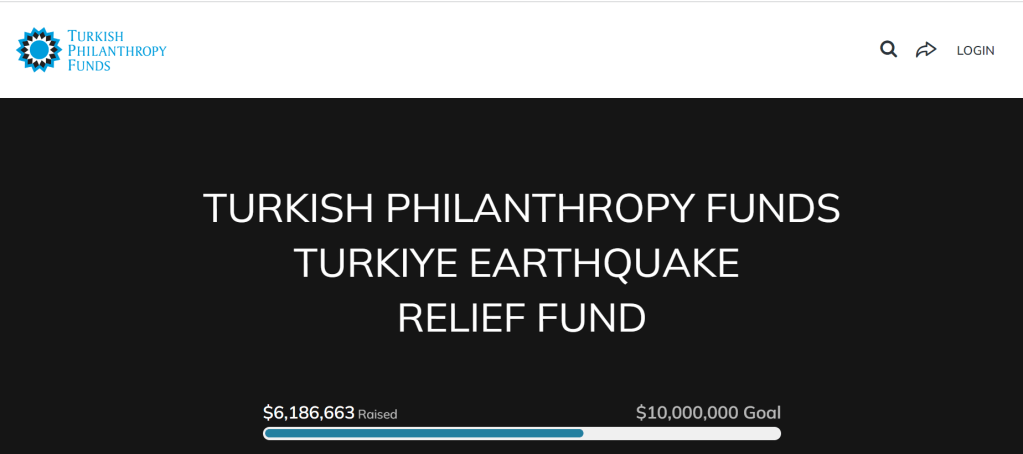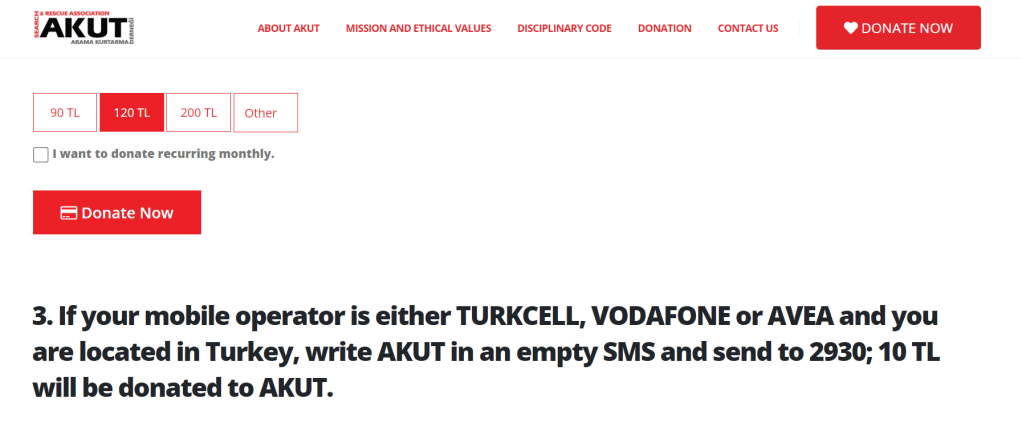
Updated
On Monday, February 6th, I woke up to a message from a friend in the U.S. “I saw that there was an earthquake in Turkey,” she wrote, “I hope you and your family are safe.”
An earthquake. Turkey.
The sound of my phone had barely registered in my consciousness before the text sent me into a state of alarm. My mind was filled with a sense of urgency, a desperate need to know the extent of the disaster. Had the much-feared earthquake in Istanbul finally struck? Did I sleep through it? Anxiously, I searched for Vivi and Ofi, but they were not in the room. My thoughts then turned to my family and friends–were they safe? I ran to the living room to turn on the television, frantically messaging my friends and family and scouring the internet for any available updates.
At 4.17 AM, a devastating 7.8-magnitude earthquake struck Gaziantep in southeast Turkey, affecting the neighboring countries, Syria, Lebanon, Cyprus, and Iraq also. The news reports showed buildings crumbling like a house of cards, creating a scene of utter destruction, and suffering.
As I watched the news, like many others, I was left feeling devastated and powerless. We then witnessed, live, in stunned disbelief an unusually large 7.5-magnitude aftershock strike the same region. Making phone calls. Checking on loved ones. Utter shock. An overwhelming sense of sadness and helplessness along with the impulse to help in any way possible. If you’ve ever experienced a disaster, natural or political, you know how it goes (though I truly hope that you never have and that you do not know how it goes). Watching the devastating events unfold, I, like many others, couldn’t help but recall the traumatic memories of the 1999 earthquake in the Marmara region–which was the first earthquake trauma experienced by my generation in Turkey. The collective trauma response of the Turkish people to earthquakes is a testament to the lingering effects of the 7.6-magnitude earthquake in 1999, a wound that has yet to fully heal.
And today, the February 6 earthquakes mark another dark chapter in Turkey’s history, being the strongest and deadliest in over 80 years.
10 cities. Approximately 15 million people directly affected. So many lives lost.
The current death toll has reached a staggering 25,000 and continues to rise, with time running out for those still trapped in the rubble. The added challenge of the snow and freezing weather has made the rescue efforts even more difficult. The situation in Syria is equally dire, with more than 3,500 reported fatalities and over 870,000 people in urgent need of food. The earthquake has left 5.3 million people homeless in Syria alone, according to the United Nations.
I know these are merely numbers to some. And it is, unfortunately, true that our generation has become accustomed to such numbers; repeated exposure to wars, crises, and conflicts breeds desensitization. Yet, as the aftermath of these two earthquakes continues to unfold, it is impossible not to feel a deep sense of sadness and loss. It has been five days, and there are still people trapped beneath the rubble, waiting to be rescued. And yes, this disaster and how it has been handled are political to an extent, but I don’t have much to say or to write at the moment–
you can’t imagine how difficult it has been to put these words together. I have just received the heartbreaking news that the last one of our students in the region, whom we have been waiting to hear about and who has been trapped under the rubble for five days, has not made it. This is only one of the many, many heartbreaking news we have been receiving since February 6th. So, I had to come here, and write something.
Since Monday, I have also received several messages from my friends across the globe, sending love and asking me how they can help. Unfortunately, the road to recovery will be long and arduous so if you would like to help, the best way is to, yes, donate to local organizations– but also do not forget to send love and positive energy.
Sadly, in these trying times, there may be individuals and organizations attempting to take advantage of your generosity and grief. Please make sure that your contributions are going to reputable organizations. Research the organization, read their mission statement, and check their track record of responding to disaster relief efforts on a platform like charitywatch. Additionally, consider giving to established organizations with established connections to local groups in the affected areas, as these organizations are likely to have a better understanding of the needs of the communities they serve.
How you can help Turkey and Syria:
1. You can trust Turkish consulates in your country that are collecting donations for supplies such as blankets, tents, winter clothing, and over-the-counter medications.
2. For those who are in Turkey (you can use Google Translate on your browser to sign up and then change the language to English if you don’t know Turkish), you can contribute to the “Earthquake Aid Campaign” launched by Turkish e-commerce sites Hepsiburada and Trendyol. These two reputable platforms are offering the list of supplies needed in the region, mailing the products directly to AFAD, Turkish Ministry of Disaster and Emergency Management Presidency. You can also donate money to AFAD and other reputable local organizations by purchasing digital support cards on these platforms.
3. If you would rather send out supplies, water, and food rather than money, you can also use the reputable Turkish app (accessed via mobile) Getir which offers on-demand delivery services for groceries. Since I’m currently in Turkey, I have been using Getir and the two aforementioned e-commerce websites with no issues (we use all these three apps daily; you can trust them). Although I’m not sure how it would work out for those abroad, I have seen that anyone around the world can now download the Getir app and join their campaign. Please check out this Instagram page for a tutorial if you are interested.

4. To directly contribute to the Turkish Ministry of Disaster and Emergency Management Presidency AFAD’s Earthquake aid campaign by donating to their bank accounts, you can access their information here. But I do know that it is more convenient for most to donate by using a credit/bank card.
You can then consider the reputable Turkish charity organization Ahbap and contribute to their campaign.

5. Turkish Philanthropy Funds Turkiye Earthquake Relief Fund is another campaign to which you can donate. Your contribution will be delivered to non-profit organizations such as AKUT Vakfi, Ahbap, ACEV, TOG, İhtiyaç Haritası, and TEGV, which have been vetted by TPF, and which are actively engaged in the affected cities to support earthquake victims in their recovery and rebuilding efforts.

6. You can choose to directly donate to AKUT Vakfı, Search and Rescue Association based in Turkey; AKUT is the most reputable fully volunteer-based NGO in Turkey that you can trust. They have been continuing their rescue and rebuilding efforts since the 90s. You can read more about them and donate here.

A note: Brandi Carlile’s non-profit foundation Looking Out Foundation has just launched an urgent earthquake appeal campaign for Turkey and Syria, and it will match all donations up to $100,000 over the next week (week of February 13th) and the contributions will be directed to AKUT Search and Rescue Association and The White Helmets, a voluntary nonprofit that has played a key role in supporting civilians in Syria since the war broke out. I can vouch for AKUT; however, I do not know a lot about the White Helmets, also known as the Syrian Civil Defense. I know that they’ve been working ceaselessly in the field in northwest Syria since the earthquakes stroke, and I have heard nothing but good stories about them, but I have also run into some articles in regard to their political affiliation. You can do more research and decide for yourself. The reason why I am only focusing on Turkish organizations and campaigns here is that I can vouch for those.
7. If you’d like to use GoFundMe, you can donate to the Turkey Earthquake Campaign launched by the Research Institute On Turkey — which will transparently direct the funds to trusted NGOs like Ahbap, as well as other reputable organizations working in the affected area. Like TPF, RIT will offer regular updates on the process of the campaign.

8. Lastly, I truly hope that the international community does not overlook the suffering of those affected by the earthquakes in Syria and provides them with the same level of support.
One organization that I personally trust is Syrian American Medical Society which has responded to the earthquakes by providing emergency aid, medical care, and supplies, to those directly affected by the disaster in Syria.

A little certainly goes a long way–donating at a time like this can save lives, but another way you can help is by sending your love, hope, and positive energy.
I know it may sound foolish, but what else are we left with, really?

This was such a devastating earthquake. I will pray for the people in Turkey and Syria.
LikeLike
Thank you, Mary–all the positive energy is much needed here.
LikeLike
My family and I have donated and are sending our hope and love since we live in California where a 7.6 would definitely be concerning, but not catastrophic. It makes my heart plummet when there are earthquakes outside of where I live because I know so many of those areas are not prepared for them, so we’re hoping for more survivors and mourn all the losses.
LikeLike
Thank you, Kat, for all the love and hope. As you say, what is more heart-wrenching is that all this could’ve been avoided. History simply has repeated itself in front of our eyes, live. Earthquakes are not the enemy here, but the constructions, and I truly hope that this can speed up government efforts to make sure we are prepared for another earthquake.
LikeLiked by 1 person
I can’t even imagine what the people in Turkey and Syria must be going through right now, and am sending lots of strength and hope to your family and friends in particular 💙 Seeing those pictures on the news and watching the death toll rise day by day has been beyond horrifying, and I really admire you for spreading awareness and doing your part to help. I know writing this can’t have been easy for you!
LikeLike
I appreciate this note, Naemi. Truly ❤ It has been quite difficult, and all of us want to do something, go and help on the ground, but that's unfortunately not possible and would cause more chaos. So, writing about this and spreading awareness is the best, as well as the least I can do. All the hope and love received.
LikeLiked by 1 person
This is very helpful Neriman, I didn’t know about the Getir – definitely will give it a try. I donated through Chooselove.org (they work with partners in Turkey and Syria like the White Helmets). My husband is Turkish and our family and friends live in Istanbul although thankfully they are okay, this news is tough to take and traumatising to some. I’m from Indonesia, where earthquakes are common and I know the horror of this disaster. I just hope that people keep donating and helping even though it’s ‘old news’. It takes years perhaps decades to build back what these people have lost.
LikeLiked by 1 person
Thank you, Chita. It has been quite rough, really. As you said, the hope is that they aren’t left alone as the whole region is being rebuilt and the communities are healing. It will be a long, arduous process. ♥️
LikeLike